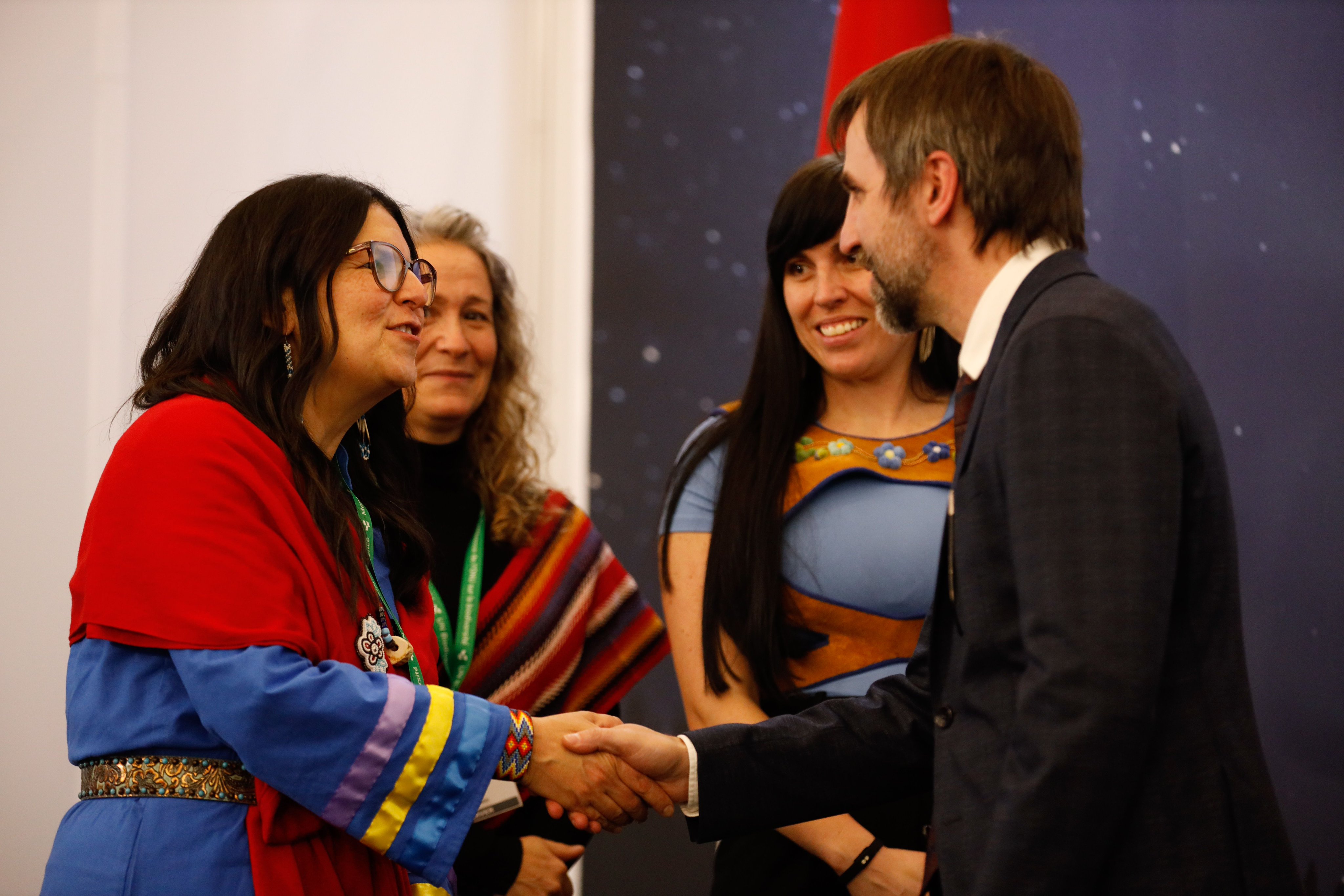Tuesday, July 1, 2025
While countries from around the world are in Montreal, Quebec for the 15th United Nations’ Convention on Biological Diversity (COP15), Canada is championing both the development of an ambitious post-2020 Global Biodiversity Framework with clear targets and actions, as well as the important role Indigenous Knowledge plays in efforts to conserve and protect biodiversity and natural environments at home and around the world.
With this in mind, the Ministry of Environment and Climate Change has announced $5.8 million in funding for 14 Indigenous-led initiatives, as part of the Indigenous-led Natural Climate Solutions initiative. These initiatives are taking place across the country, focusing on building capacity and reducing greenhouse gas emissions, while providing important benefits to support increased well-being and resilience in Indigenous Nations and communities. This includes the initiative of the Cree Nation of Chisasibi in Northern Quebec, where they are training Indigenous land users on best practices for nature-smart climate solutions to complete restoration and enhancement of coastal ecosystems.
The Nature Smart Climate Solutions Fund is a $631 million, 10-year fund to support projects that conserve, restore and enhance wetlands, peatlands, grasslands, and forests, in order to store and capture carbon. Of this amount, up to $36.9 million is allocated to provide targeted support for Indigenous peoples through the Indigenous-led Natural Climate Solution funding stream. Of course, Indigenous organizations can also submit applications directly to the Nature Smart Climate Solutions Fund, like the Stqeeye’ Learning Society’s Indigenous-led, five-year funded initiative at Burgoyne Bay on Salt Spring Island in British Columbia, to protect and increase the carbon sequestration of local forests and wetlands and help increase the quality of wildlife habitat.
Minister Steven Guilbeault introduces Indigenous-led Natural Climate Solutions initiative announcement at COP15 on December 9, 2022. Credit: Environment Canada/Twitter.
“In the spirit of reconciliation, we are committed to supporting the leadership of Indigenous peoples to help protect ecosystems and Indigenous cultures for future generations. Fighting the twin crises of climate change and biodiversity loss requires collective effort and systematic change in the ways we interact with nature,” said Steven Guilbeault, Minister of Environment and Climate Change.
“This change must include respect for Traditional Knowledge and Indigenous Science, derived from First Nations, Inuit, and Métis experience in acting as caretakers of land, water, and ice since time immemorial.”
Nature-based solutions are defined by the United Nations Environment Assembly as “actions to protect, conserve, restore, sustainably use and manage natural or modified terrestrial, freshwater, coastal and marine ecosystems, which address social, economic and environmental challenges effectively and adaptively, while simultaneously providing human well-being, ecosystem services and resilience and biodiversity benefits.”
The Nature Smart Climate Solutions Fund supports Canada’s goal to protect 25 per cent of lands and oceans by 2025, and to work toward 30 percent by 2030. Canada is home to 25 per cent of the world’s wetlands, 25 per cent of temperate rainforest areas, and 24 per cent of remaining boreal forests. These ecosystems are globally significant for absorbing carbon, mitigating the impacts of climate change, and protecting biodiversity.
“The Indigenous Guardians’ Nature-Smart Climate Solutions funding has helped the Chisasibi Eeyou Resource and Research Institute to build capacity, acquire needed equipment, and develop skills to design and implement future nature-smart climate solutions, with an emphasis on restoring eelgrass beds and other wetlands identified by our Elders, land users, and tallymen,” said Chief Daisy House, Cree Nation of Chisasibi.
“Since the mid-1970s, there have been drastic changes in our coastal ecosystem, including the disappearance of eelgrass beds, which provide nourishment to niskak (geese) as they migrate along the coast of James Bay. Niskak are the cornerstone of Eeyou (Cree) traditions and customs, and their protection is critical to our people.”
See also The Cost of Plastic Pollution: How economic instruments can address recovery and prevention
In related news, the new First Nations National Guardians Network was also recently announced by Minister Guilbeault and Valérie Courtois, the director of the Indigenous Leadership Initiative.
This new First Nations National Guardians Network will expand and support individual First Nations Guardians initiatives from coast to coast to coast. The network will connect First Nations Guardians initiatives across the country, so that Guardians can do more together than on their own. This Network will enable a Nation-based model of self-determination and a Nation-to-Nation-based model of reconciliation and partnership for responsible land and marine stewardship.
Since 2018, over 170 Guardians initiatives have been supported and have contributed to the development of capacity and employment in Indigenous communities across the country. This includes the Ndakina Guardians initiative, which supports conservation, research, education, and outreach activities that involve and reconnect Indigenous community members to their Territory in Wôlinak, Quebec.
For further information, visit: Indigenous Guardians Initiative
Featured image: Minister Guilbeault and Valérie Courtois, Director of the Indigenous Leadership Initiative participate in announcement on the First Nations Guardians Network. Credit: Environment and Climate Change Canada (CNW Group/Environment and Climate Change Canada)












